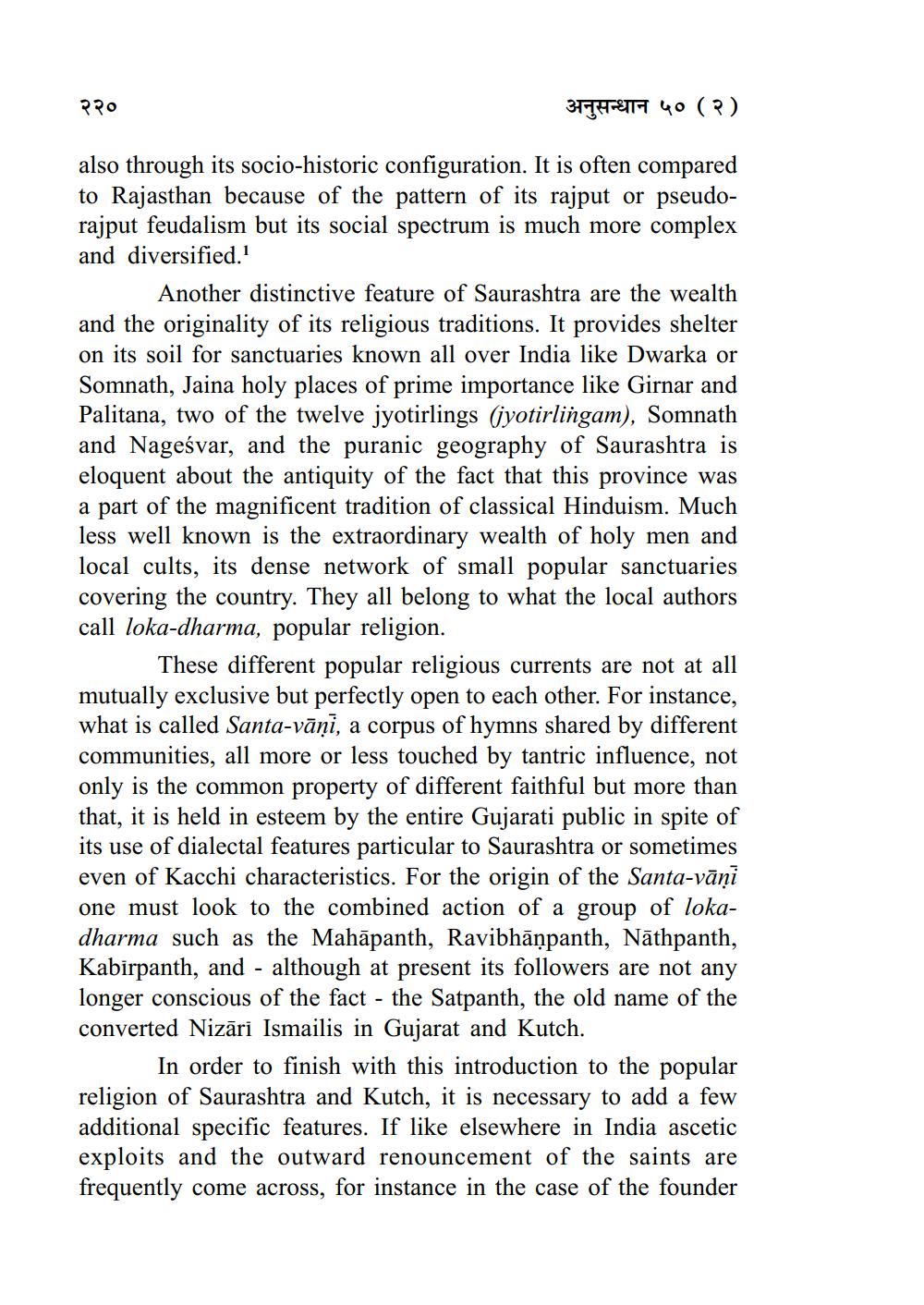________________
२२०
3714TH 40 (2)
also through its socio-historic configuration. It is often compared to Rajasthan because of the pattern of its rajput or pseudorajput feudalism but its social spectrum is much more complex and diversified.
Another distinctive feature of Saurashtra are the wealth and the originality of its religious traditions. It provides shelter on its soil for sanctuaries known all over India like Dwarka or Somnath, Jaina holy places of prime importance like Girnar and Palitana, two of the twelve jyotirlings (jyotirlingam), Somnath and Nageśvar, and the puranic geography of Saurashtra is eloquent about the antiquity of the fact that this province was a part of the magnificent tradition of classical Hinduism. Much less well known is the extraordinary wealth of holy men and local cults, its dense network of small popular sanctuaries covering the country. They all belong to what the local authors call loka-dharma, popular religion.
These different popular religious currents are not at all mutually exclusive but perfectly open to each other. For instance, what is called Santa-vāni, a corpus of hymns shared by different communities, all more or less touched by tantric influence, not only is the common property of different faithful but more than that, it is held in esteem by the entire Gujarati public in spite of its use of dialectal features particular to Saurashtra or sometimes even of Kacchi characteristics. For the origin of the Santa-vāņi one must look to the combined action of a group of lokadharma such as the Mahāpanth, Ravibhāņpanth, Nāthpanth, Kabirpanth, and - although at present its followers are not any longer conscious of the fact - the Satpanth, the old name of the converted Nizāri Ismailis in Gujarat and Kutch.
In order to finish with this introduction to the popular religion of Saurashtra and Kutch, it is necessary to add a few additional specific features. If like elsewhere in India ascetic exploits and the outward renouncement of the saints are frequently come across, for instance in the case of the founder




